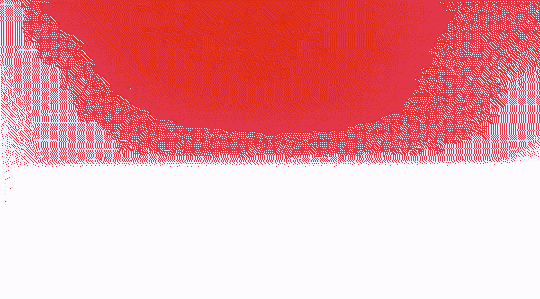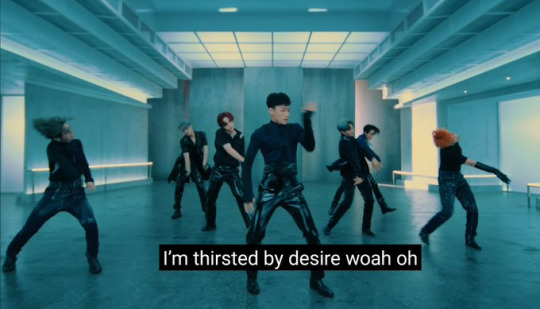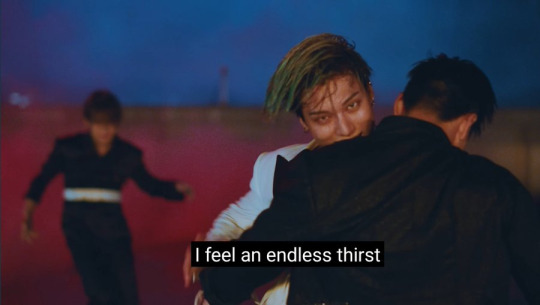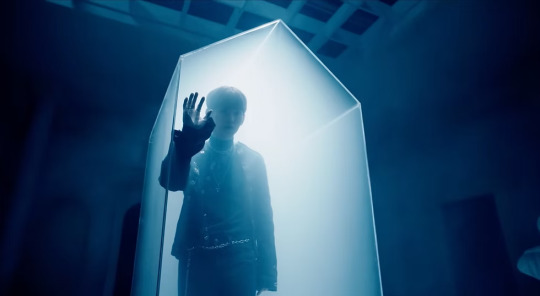#Alienation theory of labor
Explore tagged Tumblr posts
Text
Severance rocks because finally people will listen to me monologue abt. Marx and Hegel
#philosophy#severance season 2#severance#helly r#helena eagan#lord-bondsman dialectic#Hegel#Marx#Alienation theory of labor
23 notes
·
View notes
Text
Karl Marx's theory of alienation
#tiktok#karl marx#marxism#economics#economy#labor#capital vs labor#capitalism is a scam#alienation#wikipedia#theory
4 notes
·
View notes
Text
The alienation of labor or something... I don't know I'm no Marxism scholar

young men are experiencing alienation, which is apparently a different thing than transforming into a little green guy with a ray gun
#I don't know why but this is all I could think of when I read that post#yes I spent half an hour or so on that drawing just for a terrible pun#alienation of labor#alien#marxist theory#or something#i don't even know why#I could have spent that time doing school work but I regret nothing#the drawing looks better irl but my camera is shit
44K notes
·
View notes
Text
great, andor is back, can't wait for every leftist on this website to write novel-length think pieces about the revolutionary decolonial politics in their favorite disney+ show for the next three months 🙄
#tumblr communist party theory: mistaking the low-level critiques from billion$ companies in andor/severance/etc as Radicalizing the Populace#i dont wanna read all the actual books or talk to my neighbors either but we gotta!! just a little bit every day i promise its not so scary#my detestment of andor largely comes from it being a sequel with very little point. oh is the empire gonna fall? well okay i might still be#interested if the third trilogy didn't make the entire struggle of ep 4-6 entirely pointless!!!! empire 2 comes back led by the literal#same bad guy OH BUT ITS DIFFERENT BECAUSE CHILDREN OF THE ORIGINAL HEROES ARE INVOLVED! BORING!!!!!!!!#the prequel trilogy at least tells a part of the story we the audience actually never saw/heard the full picture of. andor seems to just#rehash what we know. also im just a bitter hater who is disappointed with each day that passes that no one has firebombed disney hq ✌#the last jedi & rise of skywalker were bad & ruined my decades-long love of star wars & if that makes me pretentious or whatever idc#im not getting mad at shadows btw ive already seen the posts both here & the 10 minutes i could bear looking at bsky today#thing is i totally believe people saying its a good show. i bet it is! just stoppppp trying to make your engagement w fiction praxis#like i LOVE severence but the class critiques are muddled by the fantastical cult framing vs lumon being a normal evil corp & liberal ideas#of consent & labor. its clearly making a point about capitalist alienation but im not writing home to the politburo about alleged marxist#motifs in the show directed by a guy who doesnt let the crew ever sit during his productions y'know?#dani talks about tv
0 notes
Note
Does socialist theory have any use for classes based on wealth/income? (rich/poor as opposed to bourgeoisie/proletariat)
Short answer: kinda but not really
Long answer: Classes in marxist theory are exclusively defined by the objective relationship of the subject to the property of the means of production and to the organization of labor, in capitalism it being mostly salary work. From these objective and economic relationships spring the classes of the proletariat, the bourgeoisie, the petit-bourgeoisie, the lumpen-proletariat, artisans...
Income, while highly correlated with one's position in class society, is not the defining trait of the subject, but the consequence's of the individual's conditions and specific relationship to their own work. Income itself is just the remuneration for a part of the labor-power that one exerts, or for the value created by others' labor-power that you exploit by virtue of having private ownership of the means of production. In neither of these cases is income the cause of one's class, but a consequence of it.
What a "class" analysis based on income gets you is the inability to actually strike at the core of what organizes class society. For example, the income-based analysis most radical liberals and social-democrats prefer to use (while still choosing to appropriate marxist terminology like "owning class") does not allow them to properly identify the exploitative nature of small businesses, thus, you'll see them rallying against Big Capital while their beloved family-owned small business commits labor law violations on the daily with 11 hour workdays for minimum wage. The income of the petit-bourgeoise is not that great, it's still higher than an average salary worker, but small enough that recessions or the mere existence of concentrated capital is enough to render the small property owner into a worker, a process known as proletariatization. See this really good explanation of what that dynamic means for the political implications of this economic fact.
An income-based analysis would place the small business owner and their 3 employees on the same side with, supposedly, the same interests, because they don't get a lot of money. I don't need to harp on any more to explain why that is nonsense, I hope.
Furthermore, within the working class, there are contrasts in income. There are workers who have a lavish salary, and there are workers who don't even make enough to support their basic needs. The objective fact of their exploitation is the same: they generate value with their labor-power, and sell it to a capitalist for a fraction of what they generate. Exploitation in the marxist sense is not a moral judgement. This is not about whether it's morally wrong or not to extract value from workers. Exploitation creates alienation and a class antagonism that can only ever be resolved one way, which is through the overthrow of the exploiter class by the exploited, history shows that this antagonism is what has propelled it forwards.
It is another question, and one that concerns us less, whether the salary, the price with which a capitalist buys a fraction of the worker's labor-power, is enough for the worker to lead a relatively accommodated life or not. If this was the question, which it is for, say, social-democrats, then the mere reform of capitalism (which, to be clear, is not possible to enact for all workers and all countries) to ensure a decent livelihood under the system of salary work would be enough.
With a lavish income, some might argue, a worker ceases to share the same interests with the rest of the working class who can't afford the first's lifestyle. But what this is omitting is that, in the cases of some workers with a really high salary, it becomes possible for the worker to join the ranks of the bourgeoisie by acquiring capital. Here, top-rated actors and athletes comes to mind. Actors and athletes are paid a salary in exchange for their labor-power, but the highest rated ones generate so much value that the capitalists pay them a really high salary, and then, most of the time, these highly-paid workers acquire some property and become a part of the bourgeoisie. In the US, for example, a bunch of high-rated workers of the entertainment industry such as Oprah, with more than 2,000 acres, have become large landlords in Hawai'i, taking advantage of the colonization of the island chain.
The break in common interests between highly-paid workers and the rest of their class comes from the change in economic class that their income allows for, not the income itself.
There is one instance when income becomes more relevant, and that is in the case of the labor aristocracy. Because of the international division of labor created by and protected by imperialism, the workers of the imperial core, as much as they are still exploited by capitalists and have revolutionary interests, benefit directly or indirectly from the even greater exploitation placed on the workers of the imperial periphery and global south, allowing for a generalized improvement in the quality of life for the imperial core workers.
Two conclusions can be made from this fact:
First, that the social-democratic welfare state depends on the exploitation of vast swaths of the world, and thus, it is not an applicable system in the majority of the world. Second, that the working class of the imperial core can, by the objective fact of the improvement of their material conditions by the spoils of imperialism, can act in the interests of the imperialist bourgeoisie. Take as an example the SAG-AFTRA union, which decidedly supported the imperialist project of Israel after al-Aqsa Flood. This does mean that a greater effort is needed for most workers in the imperial core, the labor aristocracy, to achieve revolutionary-political consciousness. The spontaneous class consciousness that some people insist is enough to be revolutionary, is born of the daily class antagonisms one experiences, and also of the material conditions underlying one's existence, therefore, as we have seen a lot this past year, spontaneous consciousness can include attitudes that favor the bourgeoisie.
And still, even if the labor aristocracy is broadly defined by a higher income, it is still dependent on the relationship to the organization of labor. Even the most desperate and destitute homeless citizen of the imperial core benefits in a lot of ways from the system of imperialism. For example, they don't need to worry about the political instability most imperialized countries suffer, and to put a cruder example, they are never going to get shot by a 22-year-old USamerican soldier doing target practice.
281 notes
·
View notes
Text
I'm going to posit something that may sound a little weird at first: but I think the same kind of dissatisfaction that leads people into questionable or dangerous reactionary movements, is the same dissatisfaction that leads people to start witch hunts and dog piling on social media, is the same dissatisfaction that gets people into new age, vibes-based "health" and "cleansing your toxins" lifestyles, is the same dissatisfaction that leads people into an Marie Antoinette-style obsession with cottagecore and the nostalgia for an imaginary bucolic lifestyle that never really existed. It's estrangement from results, particularly direct results.
This is essentially just the Theory of Alienation, but the connective tissue between cult-of-action-to-cottagecore hit me in a particular way that made me want to dig into the specifics in terms of internet phenomena.
Just about every aspect of the computer-bound/computer-dependent lifestyle is geared towards separating people from process from product. We don't see the results, we don't see the mechanisms, we don't see the other people involved. So the prospect of working outdoors to plant something nourishing and be able to see and enjoy the results is intoxicating (especially if you don't rely on doing it for a living). So is the idea that you can just pick up a weapon and make something happen. So is the idea that you can punish people for real or much more often perceived crimes directly without waiting on due process. So is the idea that you don't have to throw yourself on the mercy of a doctor who trivializes and ignores your symptoms to the tune of hundreds or thousands of dollars. Hell, the obsession with generative AI being pedaled as a "solution" to the apparent "gatekeeping" of "talent" (or time/labor/compensation) is stemming from the same thing. There are plenty of examples but the roots connect. Returning to the theory of alienation for a second-- is not an accident that we have been separated from each other and from our labor, it is unimaginably profitable for the ones selling us things and keeping us beholden to them for scraps and pennies our entire lives. It is killing us. It has been killing us. Some people exponentially more than others. You know this, you're living in it.
I don't have a plan for the Revolution or whatever but I am pretty convinced that it is critically, vitally important that we Make Real Things, with our hands and brains and with other people-- real art, food, friends, crafts, tools, stories, clothes, fun; help with something, do things for people, grow something, fix something, learn something. Get a result you can see that's YOURS and GOOD and not a product of consumerism or fear. --Are there obstacles to all these things? Oh baby, are there ever! That's the point! That's the problem!! <-THE PROBLEM. This isn't a judgement!! We are all fucking struggling!!!
Making real things is essential not in a woo-woo way but in a practice so you can improve way. So many people are convinced they can't make things simply because they haven't made things before. Start somewhere, anywhere, and you can build the confidence to in yourself that you can do more. It will help you adapt and strengthen yourself in a world that is trying very hard to keep you powerless and isolated. Again -> The point. People end up seeking things that make them FEEL like they've made an instant change in the world, or feel like they're escaping the rat race, or anything that feels like regaining power over their lives.
But if you don't also control where that feeling comes from, you are open to being manipulated by all manner of opportunistic and predatory forces. If you create something tangible/observable within your own means (and this does NOT preclude collaboration), you made something of value and that value remains with you, to do with as you wish.
That's empowerment. It can be practiced and nurtured, in fact it MUST be.
#lifeblogging#MAKE REAL THINGS AND YOU WILL HAVE CREATED VALUE THAT REMAINS WITH YOU. SEIZE THE MEANS OF PRODUCTION.#anyway it's 3:30 a.m.#the spirit of the CBD gummie moved me#do with this what you will
60 notes
·
View notes
Text
"The rejection of sabotage in the metropole, based on the argument that it would be better to take things over instead of destroying them, is based on the dictum: the people of the Third World should wait for their revolution until the masses in the metropole catch up. This ignores the problem of the labor aristocracy within imperialism, first addressed by Lenin. Furthermore, this demands that the people of the Third World allow all sectors of the world proletariat—most of whom form part of the backbone of the imperialist system—to ride on their coattails. It is the rallying cry of opportunism.
... We know that it will be an extremely slow, difficult and exhausting process to get things underway in even a few places. That they are, however, in motion indicates that the situation is 'ripe' to take up the anti-imperialist struggle in the metropole—not 'ripe' for revolution, but 'ripe' for the anti-imperialist offensive. ... If the people of the Third World are the vanguard of the anti-imperialist revolution, then that means that they objectively represent the greatest hope for people in the metropole to achieve their own freedom. If this is the case, then it is our duty to establish a connection between the liberation struggle of the peoples of the Third World and the longing for freedom in the metropole wherever it emerges. This means in grade schools, in high schools, in factories, in families, in prisons, in office cubicles, in hospitals, in head offices, in political parties, in unions—wherever. Against everything that openly negates, suppresses, and destroys this connection: consumerism, the media, comanagement, opportunism, dogmatism, authority, paternalism, brutality, and alienation.
'This means us!' We are revolutionary subjects. Whoever begins to struggle and to resist is one of us. The answer to the question of how and at what level to struggle against the system, where best to apply pressure when one is at one’s weakest point—we’ve answered this question—is not to be found in a stream of slogans, but rather in the dialectic of theory and practice. ... The narrow-minded nation-state perspective of the opportunist left is petit bourgeois. It fails to recognize or acknowledge that the people of the Third World are the vanguard and that the struggle in the metropole is the struggle of international brigades of the people’s war in Quang Tri and Hue, Palestine, Lebanon, Angola, Mozambique, and Turkey, without which no advances will be made. It is also petit bourgeois and un-Marxist to not recognize that the masses here will eventually find their political identity on the side of the liberation struggles, and will eventually free themselves from the grip of the system, with its lies, its glitziness, its election promises, and its lotteries."
Red Army Faction, "Black September" (1972)
87 notes
·
View notes
Note
feel free to answer when you’re not drunk but can you elaborate on the material basis for why USian communist orgs dont believe in revolution? is what you’re saying basically that - to put it crudely - workers in the US are alienated from the means of production so they dont know shit about how production actually works and therefore don’t understand how it can be seized and altered to serve the proletariat?
Time to elaborate some on this post now that I'm awake and sober! 😁
Big disclaimer that these are largely my theories, which have yet to be proven or disproven through revolutionary practice!!! (I'm working on it. . . . 🙇♀️)
Yeah you've got my material analysis right--though I'm not sure if "alienated" is the correct word (maybe "estranged"? thought it's been a minute since I read The 1844 Manuscripts). To clarify, though, when I say "the material basis for this degraded self-confidence," I of course don't mean it in a sense of direct causality! The loss of revolutionary confidence is strictly the result of previous generations of communists in the US failing to accurately interpret their circumstances and put forward an appropriate plan of attack. The shift in the mode of production following the neo-liberal turn merely provided the soil for weeds, which communists failed to cut down. As George Jackson put it, "when revolution fails, [. . .] it's the fault of the vanguard party." [1]
In my analysis, there have been two main failures which lead us into our current dearth of revolutionary confidence: first the failure of the socialist workers movement in the 1930s, and second the failure of the socialist movements for national liberation (often called the New Left) in the 1970s.
The first failure I haven't studied as thoroughly, but my rough understanding is that the workers movement, which held strong communist influence at the dawn of the 20th century, was effectively blunted by the New Deal, through which FDR divided the working class by paying off white workers at the expense of the oppressed nationalities. CPUSA, which had thusfar only made stumbling progress on addressing issues of racism, was ill-equipped to navigate this rupture in its base, leaving it vulnerable enough for Uncle Sam to massacre the party's revolutionary spirit during the period of McCarthyism.
Then in the 1960s, the trajectory of the civil rights movment lead black USAmericans to start viewing their communities as an "internal colony" of US imperialism, which could be best liberated through the strategies of national liberation which had worked (or were working) in China, Korea, Cuba, and Vietnam (with fairly little attention paid to the USSR and Eastern Europe). The explosive impact of the Black Panther Party inspired the formation of a bunch of groups in racialized or otherwise oppressed communities (e.g., the Young Lords, the Brown Berets, the Red Guard Party, the American Indian Movement, the Gay Liberation Front, the Street Transvestite Action Revolutionaries, etc.), and whilst these groups did attempt to form a unified front against the DotB, [2] their movements ultimately failed to coalesce, and were stamped out as individually as they were formed. Imo, had there then been in the US a genuinely revolutionary communist party, with a basis of support within the proletariat, I would be blogging to-day from the United Socialist States of Turtle Island--instead, the trade unions largely rejected this movement, and even moved closer to the right to distance themselves from this tendancy! [3]
The labor movement here (such as it exists) has been largely devoid of socialist character for decades now, and a lot of the New Left veterans circled around to blaming the our proletariat for the period of intense counterrevolution that was the neo-liberal turn. When the Regan administration launched a comprehensive assault on the unions, communists were not there in enough force to organize a successful counter attack.
Imo, for communist revolution to succeed in the US we will need a movement that has a thorough counter to national/racial/sexual oppression, otherwise the DotB will continue to run us through their highly advanced proletariat-dividing-machine until Germany finally nukes us all. We also need a movement that is internationalist in its foundation, otherwise they will use imperial chauvanism to divert our cause! Personally, I'm skeptical that the US proletariat is even a revolutionary class at this point, as our immediate economic interest is to defend the empire that subsidizes our relative luxury. If anything, we're in a similar position to the French peasantry who voted Louis Bonaparte in 1848. But like the French (and the Russian, and Chinese, and Korean, etc.) peasants, we can recognize our long-term interests and rally behind a communist movement that successfuly demonstrates the importance of proletarian revolution!
This is why I continue to maintain that the cornerstone of US communism rn should be a proletarian movement against imperialism (that is, against the material infrastructure through which "our" government projects its global hegemony)! Of course, idk how to build this yet--but to all my followers in the US, let's make a deal: you go out and start communist organizing in your community, and we can meet up and check notes when one of us figures out how to advance the level of struggle. 😉
Blood in My Eye. Pg 14.
Most notably through the Revolutionary People's Constitutional Convention.
The effect of the Sino-Soviet Split on US socialism in this period is something I still need to properly study, but it feels wrong not to mention it at all here. My rough impression so far is that, as most established socialist states and older socialist organizations sided with the Soviets, the New Left who mostly sided with the PRC found themselves isolated from the global movement that had initially inspired them. But yeah this is just my impression from tertiary sources, so please please correct me if you know better. 🙏
#ask#thought cabinet#communism#get organized#we have nothing to lose but our chains. we have a world to win
40 notes
·
View notes
Text
this is an analysis of jamil's solo song snippet!! im going by the fan translation of the wonderful @winterspellsfrozenkit who has provided fan translations of the other snippets as well!! without further ado, here is a copy of their translation followed by the analysis.

蛇と瞬き-JAMIL:
Jewels and magic cannot Fulfill the wishes in me Knowing no end To days filled with misery. Gasping as I just try to breathe Desires creeping out, trying to leave The more that I desire, The more narrow this place is The light will never fade in me My anger will never cease to be If only I could expose it all Ah ah ah! A shadow is dancing Listen to the insatiable voice Freedom’s in my hand, Like I’m cursing and To the end I’ll FLY-yah-yah Ah ah… Not enough to get by-ah-ah The Snake and Blink

let's do a line by line analysis of the song and then i'll share my thoughts!!
"jewels and magic cannot/fulfill the wishes in me" immediately what comes to mind is marx's theory of commodity fetishism which he writes about in capital volume one.
"A commodity appears, at first sight, a very trivial thing, and easily understood. Its analysis shows that it is, in reality, a very queer thing, abounding in metaphysical subtleties and theological niceties. So far as it is a value in use, there is nothing mysterious about it, whether we consider it from the point of view that by its properties it is capable of satisfying human wants, or from the point that those properties are the product of human labour" Karl Marx, Das Kapital
basically, commodity fetishism is what happens when we value commodities outside of the labor that goes into creating them. it is most blatant with things like designer items because we are so separated from the labor and yet put some idealist value onto the product for the label. commodity fetishism begins in the supply chain when the capitalist, who owns the means of production, separates the commodity from the laborers who make it. it happens when you purchase clothes and don't acknowledge the labor and raw material extraction that went through making those clothes.
in this case, jamil is acknowledging that commodities are not what he wants, even though in his book seven dream we see that he merely replaces his hierarchical position with that of the al-asim family, whom he is loyal to through the caste system. deep down, jamil knows that it is not what will fulfill him which is why in the wish event all he asks for is one trip where he can go some place where no one knows him and the curse of his caste lineage cannot oppress him. what jamil wants is freedom, not wealth and power.
jamil himself deals with commodity fetishism, in which his labor/labor power is the commodity. his time, effort and his very life are commodities, and because of this, he is heavily alienated from his work and others. jamil's position in society allows for him to be dehumanized and that is an alienating experience. he is nothing more than what he can bring kalim.
"Presupposing private property, my work is an alienation of life, for I work in order to live, in order to obtain for myself the means of life. My work is not my life. Secondly, the specific nature of my individuality, therefore, would be affirmed in my labour, since the latter would be an affirmation of my individual life. Labour therefore would be true, active property. Presupposing private property, my individuality is alienated to such a degree that this activity is instead hateful to me, a torment, and rather the semblance of an activity. Hence, too, it is only a forced activity and one imposed on me only through an external fortuitous need, not through an inner, essential one. My labour can appear in my object only as what it is. It cannot appear as something which by its nature it is not. Hence it appears only as the expression of my loss of self and of my powerlessness that is objective, sensuously perceptible, obvious and therefore put beyond all doubt" Karl Marx, Comment on James Mill
the last line heavily applies to jamil since his work, serving the al-asim family, is a loss of himself. he lowers himself, his intelligence, his abilities, and his strength for the sake of kalim. he is powerless in this situation, as he has stated previously, since upsetting kalim's father could drag his entire family into the streets or worse. his work is not something he does because he sees value in it for the betterment of society or for personal enlightenment, but because he is forced to.
a lot of this can be attributed to the english translation being so bad and censoring so much?? here's some examples that come to mind!!





chalking things up to just "im loyal to kalim" really lowers the stakes and it blurs how bad things truly are for jamil.
"Knowing no end/To days filled with misery" i find this issue comes a lot with the fandom, but we forget that jamil born into an unfair caste system and has no real way out of it. his suffering is endless and if he marries and has children, he will just be dragging them down with him.
unlike a wage laborer, jamil is stuck working for the al-asim family because of his lower caste. we don't know if he earns money at all, but i highly doubt it. his situation is like other caste situations in which he and his family have their home tied to the al-asim's. jamil is doing "well" but at the price that his family serves kalim's. sure, he is housed and fed, but at the cost that his life be at risk to save kalim's. since caste is tied to lineage and tradition, there really is no escape for jamil from this.
also, reminder that if jamil literally dies taste-tasting something for kalim, there will be no consequences. imagine being a child and learning that another kid's life is more sacred than yours because of your unlucky birth?
"When one individual inflicts bodily injury upon another such that death results, we call the deed manslaughter; when the assailant knew in advance that the injury would be fatal, we call his deed murder. But when society places hundreds of proletarians in such a position that they inevitably meet a too early and an unnatural death, one which is quite as much a death by violence as that by the sword or bullet; when it deprives thousands of the necessaries of life, places them under conditions in which they cannot live – forces them, through the strong arm of the law, to remain in such conditions until that death ensues which is the inevitable consequence – knows that these thousands of victims must perish, and yet permits these conditions to remain, its deed is murder just as surely as the deed of the single individual; disguised, malicious murder, murder against which none can defend himself, which does not seem what it is, because no man sees the murderer, because the death of the victim seems a natural one, since the offence is more one of omission than of commission. But murder it remains." Conditions of the Working Class in England, Friedrich Engels
i share this quote with you guys because i want to remind you all, if jamil dies in service of kalim, it is murder since people knew it was possible that he would die. i remind you of this argument because further lyrics have a more revolutionary spirit to them. what jamil did was wrong, but violence only creates more violence, and violence against one's oppressor and oppressive state is a reaction, not unwarranted. poverty and caste are violent. it is my belief that if someone dies in poverty because of the state's refusal to provide these people with healthcare, housing, or food, it is murder with the blood being on the hands of the state.
in this case, the violence done to jamil is due to caste. there is a constant threat of his family being thrown to the streets if he dares to rebel. jamil has been doing an adult's work since before he could properly even reach over the stove. what jamil did was cruel, knowing that kalim trusted him, he betrayed him, but that betrayal did not come from a place of pure malice. as a child, he knew kalim was deemed more important than him and was stripped of his autonomy because of it.
"Gasping as I just try to breathe/Desires creeping out, trying to leave/The more that I desire,/The more narrow this place is" here, jamil is restarting his desires and depicting his life experience as suffocating. he desires just as anyone else does, but he has no means of reaching these desires.
marx writes a lot on the way "want" is a motivation which keeps the workers alienated and working for the possibility of earning enough to enjoy the things that bring true fulfillment in life.
"Self-renunciation, the renunciation of life and of all human needs, is its principal thesis. The less you eat, drink and buy books; the less you go to the theatre, the dance hall, the public house; the less you think, love, theorise, sing, paint, fence, etc., the more you save – the greater becomes your treasure which neither moths nor rust will devour – your capital. The less you are, the less you express your own life, the more you have, i.e., the greater is your alienated life, the greater is the store of your estranged being. Everything ||XVI| which the political economist takes from you in life and in humanity, he replaces for you in money and in wealth; and all the things which you cannot do, your money can do. It can eat and, drink, go to the dance hall and the theatre; it can travel, it can appropriate art, learning, the treasures of the past, political power – all this it can appropriate for you – it can buy all this: it is true endowment. Yet being all this, it wants to do nothing but create itself, buy itself; for everything else is after all its servant, and when I have the master I have the servant and do not need his servant. All passions and all activity must therefore be submerged in avarice. The worker may only have enough for him to want to live, and may only want to live in order to have that." Economic and Philosophical Manuscripts of 1844, Karl Marx
ultimately, these wants further push us into positions of submission to capitalism and labor. it is like the concept of working to live. you do labor, have your surplus value extracted, and maybe eventually you'll get the chance to take your family on a nice vacation. since jamil is not a wage laborer, and instead a member of a servant caste, this manifests a bit differently in his case, but marx's point of self-renunciation still applies. jamil is a creative person, like we know he is good at dancing and cooking, but the latter is in service of kalim and the former he tries to lower to not outshine kalim. he has the ladder to reach for the stars but he isn't allowed to.
he is alienated from himself in this way. i don't think anyone just performs their creative arts for the sake of praise, but praise is nice. artists post their art, writers post their writings, dancers and actors and singers perform, because art is something to be shared. art is also something which is infamously bought and gate-kept by the wealthy.
how much has jamil really been able to explore his creative passions? every waking hour is spent making sure kalim is alive and satisfied. kalim can dance and make music because he has the time and resources to, jamil has much less of that since his existence is tied to the well-being of kalim. his "passions are submerged in avarice" because it is through wealth and visibility that kalim get the time for his art, which is exactly what jamil does not have. it makes the point of his book seven dream so much more interesting, because even though he truly does not wish for wealth, but instead freedom, subconsciously, he acknowledges the power and blessing that is great wealth.
what jamil is saying here is that the more that he wants, the more that he yearns and longs for things, such as freedom, the more suffocated he becomes. capitalism creates the disparities for this want to exist, waves possibilities around, and then pulls the goal post further and further from us. jamil sees the freedom of others every day, he sees the privilege of kalim all the time, and the finish line just gets farther and farther away from him. "this place" becomes more and more narrow the bigger he dreams, so he may as well make himself and his ambitions as small as possible to fit into his caste.
"The light will never fade in me/My anger will never cease to be/If only I could expose it all" here jamil acknowledges that despite his attempts to not want, to make himself smaller for the sake of kalim, his desires will truly never cease, nor will his anger.
"if only i could expose it all" is a rebellious cry and it makes me wonder if the caste system is deemed unacceptable by others. is this, like in our world, an archaic form of oppression that people deem barbaric? or is he talking about exposing his resentment and finally taking back his autonomy by violent means?
"The history of all hitherto existing society is the history of class struggles. Freeman and slave, patrician and plebeian, lord and serf, guild-master and journeyman, in a word, oppressor and oppressed, stood in constant opposition to one another, carried on an uninterrupted, now hidden, now open fight, a fight that each time ended, either in a revolutionary reconstitution of society at large, or in the common ruin of the contending classes." The Manifesto of the Communist Party, Marx and Engels
marx is not saying that revolution is inevitable, but that it is always a possibility, and if revolution does not happen, the oppressed class will just be further oppressed. jamil is the oppressed and the al-asim family are the oppressors. as we see, he is fearful of what could happen of kalim's father got wind of him rebelling. jamil's overblot was the manifestation of all the violence done to him, releasing in a violent revolutionary act. what he did was cruel, but i would argue it is even more cruel to let a child believe that his life is lesser than that of his peer.
now im gonna get into frantz fanon and the wretched of the earth, i couldn't help myself </3
"And it is clear that in the colonial countries the peasants alone are revolutionary, for they have nothing to lose and everything to gain. The starving peasant, outside the class system, is the first among the exploited to discover that only violence pays...The exploited man sees that his liberation implies the use of all means, and that of force first and foremost... non-violence. In its simplest form this non-violence signifies to the intellectual and economic elite of the colonized country that the bourgeoisie has the same interests as they and that it is therefore urgent and indispensable to come to terms for the public good." The Wretched of the Earth, Fanon
these lines read to me like a cry for freedom. it is the young revolutionary raising his gun in the face of his oppressor, it is the peasants arming burning down the manor, the villagers destroying the basileos's estate and taking the economy and politics in their own hands. his anger will never be satisfied until he gets what he is owed, his very own life. all those years spent taking care of kalim have just been years of the constant reminder of his status.
under a caste system, your lineage is what decides your fate, and for jamil that means he will serve the al-asim's till he dies. he cannot escape this. many caste systems, such as the one in yemen, make it so that you cannot even marry out of your caste, and no matter how much wealth you accumulate, you will still be considered a member of the servant caste. while it is fun to imagine jamil marrying out of his caste and moving away somewhere, the reality is that it is most likely not plausible. his parents probably married because they were both in the same servant caste, and if he ever ended up married, it would probably be to someone in his same caste.
i've repeated it a million times, but there is no escape. he is suffocating and violence is the only way out, it seems.
"A shadow is dancing/Listen to the insatiable voice/Freedom’s in my hand, /Like I’m cursing and/To the end I’ll FLY-yah-yah/Ah ah… Not enough to get by-ah-ah" for the sake of time, i'm going to analyze this all together since i feel like i've been writing this since the release of those snippets.
now, the shadow can be many things. im most convinced it is referring to the manifestation of his resentment, the overblot phantom. @estcaligo has this post discussing blot as a physical manifestation and the cultural depictions of negative emotions as something physical. and i reblogged it with this post adding onto the islamic/sufi depiction of nafs and how it relates to overblot.
here's what i said on the topic and i will relate it back to these last few lines of the fan translation:
"the word nafs is derived from nafas which means breathing. nafs, colloquially means self/person. for example, in my dialect of arabic, we say "nafsi" to mean "myself" since the "ee" sound makes a phrase possessive. theologically, nafs is most often referring to the soul. i think the idea of nafs coming from the word nafas/breathing is important in this case. you breath in and out. you take in and then you release. in islam, nafs is cannot be bad or good or beautiful and so on, but it is more like your health, something you nurture. you feed your nafs bad things, it will have a bad reaction and release bad into the world. when it comes to the blot and overblot in twst, we can imagine the blot accumulation is their nafs being corrupted and their overblot is the release of their tainted nafs. the whole idea of the phantoms being created from the blot, and the characters having to fight them off (like jamil arguing with his phantom that he is not imprisoned like a genie). this concept exists within the quran, the idea of battling that which corrupts your nafs through jihad. and no, not jihad like the crusades, but general struggle. jihad just means struggle... ultimately, this struggle is what helps clear the nafs of corruption, and when we battle the mages who have overblotted, we are faced with the negative emotions which led them there, and they struggle against them to survive."
the blot is fed by external experiences that deepen the negative feelings of the mages, which corrupts their magic. for example, leona has a scene of blot accumulation when jack says something that reminds him of his elder brother, who he resents.

right after this, the ink spills.
like leona and the others, jamil's blot has been fed by all sorts of negative experiences which nurtured the seeds of his resentment until it grew too much to be held within the confines of his soul, and so it burst and released into the form of the phantom. this is exactly the way nafs is depicted in islam. to counteract it, you try to feed your nafs good things.
the negative voices in jamil's head, the voices of his parents and the figures of authority who keep stacking heavier things onto the boulder he's rolling up the mountain fighting against his reason. the "insatiable voice" is the urge to just say 'fuck it' and go wild. to attack those who oppress him, to hurt kalim, the symbol of his disenfranchisement, and forget about his responsibilities to his family. it's tragic. "freedom's in my hand" at the cost of so much, but he has been pushed to the point where it seems worth it to just release it all. he wants to drop the boulder and let it crush whoever was climbing the mountain behind him. "cursing" may refer to the cost of his freedom.
like he says, he cannot just drag his family into the streets for his own freedom. imagine the devastation of his family, of his sister if he decided to defect. they would face the consequences of his actions, cursed by his need for freedom, while he was off away doing whatever it is that he wanted. the cost is a curse, and it is too great.
of course, "fly" is commonly used to depict a state of transcendence and escape, so i won't stick too long on it. the next part, "not enough to get by" reminds me a lot of the story of icarus. it seems like that despite his desire for freedom, jamil subconsciously sees it as a doomed ambition. even if he does fly, his wings will melt. something will pull the ladder out from under him as he reaches to grasp the stars, something will grab him by his hair and drag him back down the hellish life he's been living.
i've been wracking my brain for a while about "the snake and blink" part of the song and here's the ideas i've got so far before i conclude:
a) the usual christian symbolism of snakes being the temptation of knowledge, corruption--you guys know the garden of eden story. john milton's paradise lost snake.
this analysis suggests that the snake is some sort of temptation, and the moment jamil blinks, it disappears.
b) other cultures don't view snakes in a negative light. i talk about it more here, but in islamic culture, snake iconography is used in hospitals and some art depicts snakes stinging away evil spirits. the islamic story of adam and eve does not feature a snake and instead the whispers of iblis/satan.
there's the middle eastern folktale of shahmaran, queen of snakes. she is a half snake half woman creature who is never portrayed as good or bad. sometimes she is an oracle and other times she is respected or tricked into being killed. kurds specifically have her symbolize good luck and many depictions of her death regard her sympathetically.
in ancient egypt, wadjet, the cobra goddess is a protective goddess who was the nurse to the infant horus, and protected isis. in many iterations, she symbolizes greenery and fertility. the aztec deity quetzalcoatl is a "feathered snake" whose domain is rain, wind, learning and agriculture. he brings life and had a role in bringing about the world. the naga is a half-human half-cobra who is often depicted as the protector of siddhartha gautama and the buddha. they are powerful and dangerous when angered, and protective.
im gonna make a full post about snake symbolism and jamil some other day, but for now, these interpretations of the snake make things seem less sinister and more hopeful.
these snakes are instead symbolizing life, protection, and the possibility of a future, but these hopes are gone away in a blink "snake and blink" as he says at the end of the snippet.
for just a quick conclusion of my overall thoughts. i think the rest of this song will further play on this idea of freedom and desire. i like it a lot. no, i LOVEEEE it omg the vocal performance??? that high note is constantly replaying in my mind like jeez the rent was due. the themes are loyal to jamil's character and i wonder how the song will end, yk?? will any of these songs have a positive/hopeful conclusion? personally, i think i prefer the ideas of all the threads not being completely tied. as much as i felt sad during the kalim and jamil interactions in book five, i felt like it was best that it ended that way. i agreed with silver's "let them fight it out" sentiment during book seven as well because i dont think anything can truly fix the issues between them.
IM DONE!! hope you guys enjoyed this long ass analysis of that like less than two minutes snippet of jamil viper's solo song!! idk if i have the energy to do the other ones as well, but malleus' and leona's brought some interesting eco-criticism stuff to mind.
#💝 — lore and theories#twisted wonderland#jamil viper#twst analysis#twst jamil#leona kingscholar#twst spoilers#jamil solo song#malleus draconia#mythology#culture#karl marx#friedrich engels#frantz fanon#twst x reader#jamil viper x reader
45 notes
·
View notes
Text
the issue when trying to discuss ableism in any capacity on this website (degeneration theory, AI, phones, tiktok, rhetoric about Going Outside, cartoons, appeals to normalcy, manual labor, whatever the usual topics are) is that people will, in almost 100% of cases, respond to you with "well i'm also disabled and i don't use it as an excuse / i'm also disabled and this has nothing to do with disability / i'm also disabled and its ableist of you to say this about disabled people."
ofc this has to do with 1. the fact that the amount of users who identify as neurotypical on this website is close to 0; 2. the word disabled, as used in this context, does not really refer to a coherent group of people with unifying experiences; 3. that it reifies disability (and what is considered to lie inside and outside of it) as something non-contextual and 4. that, obviously, you being able to do something as a (disabled) person informs in no way what another (disabled) person can do. but to me the core issue with this reasoning is this: how does the fact that your experiences impede your functioning to some degree within our current society make you an authority on all matters related to this functioning? the assumption that this inherently qualifies you to decide how other people's experiences are shaped by those systems (or how those systems work and support themselves!) is ridiculous. your (and everyone else's) experiences inform your opinions, but they do not in any way mean that you do not come with your own biases, agenda, ideologies, unexamined ideas.
and that's why the common response (your functioning is likely less impaired than other disabled people's; you are likely experiencing a milder form of disability) to this line of thinking does not really in any way resolve this problem - ultimately making assumptions about people's personal life on a public platform is a losing game for many reasons. it creates a situation where listing the (often painful; often violent; often traumatizing) ways that you, personally, have struggled and experience disability is necessary to enter the conversation. well i used to think aliens were kidnapping me and I still never hurt someone. well i couldn't get out of bed for six months but i still think making things with your hands is a crucial part of humanity. well i'm intellectually disabled but i still find ways to engage with serious theory. like ok. what does that have to do with anything exactly?
45 notes
·
View notes
Text
Looking for Book Recs
I've been brushing up on a lot of leftist theory lately, mainly anarchist theory, and I keep running into a few frustrations. The text I just finished reading had a lot of good things to say, but there were a few things that irritated me immensely:
The author was incredibly opposed to sex work and kept framing it as something people, primarily women, do when they have "no other options." I have dabbled in sex work and am friends with many sex workers, and I have no patience for that shit. I'm looking for more sex workers' perspectives on leftism, and anarchism specifically.
The author was flagrantly opposed to all religion and spirituality, and largely framed religion in a Christian-centric lens. I'm now looking for more perspectives on leftism from religious minorities. I firmly believe that any sort of "abolish religion" talk does nothing but further alienate and marginalize people who are already facing violence. Spirituality is not the enemy of leftism. Anti-theism and hostility toward minority faiths is not the solution to religious-backed violence.
The author wrote at length about the importance of people, especially women, being able to support themselves through their own labor instead of relying on a spouse, but there was no time spent on discussion of disabled people who literally can't work. I highly doubt the author intended to imply that disabled people are bad leftists, but it really left a sour taste in my mouth. I am looking for wider disabled perspectives on leftism that don't hold up "can perform manual labor" as the highest virtue a leftist can possess. Equating "people who can't work" with "parasites" is a bad goddamn philosophy.
I have a short list already, and I'm obviously going to be doing my own searching, but if anyone has any recs that can help shorten my search, I'd be super grateful. I'm specifically looking for books, but articles and essays are also great.
36 notes
·
View notes
Text
Liberal feminists, read
When someone insists that engaging in sex work or conforming to patriarchal beauty standards is simply their individual choice, they overlook the way ideology interpellates them—hailing them into subject‑positions that feel voluntary precisely because the patriarchal order has already scripted those desires and options. In other words, the ‘choice’ they claim is not a purely autonomous act; it is a response to the ideological call that has pre‑shaped what seems desirable, possible, and even imaginable for them. Conforming to patriarchal standards recapitulates the very harmful norms already imposed on women, reinscribing the hierarchy instead of disrupting it. To conflate choice(1), the at of chosing to conform to patriarchal ideologies, and choice(2), to chose to do something without knowledge of patriarchal ideologies, is a reified abstraction that obscures the structural forces at play, ultimately harming women even more. Without a concrete totality of feminist-theory, your understanding of the subject is limited, and you risk falling into the misogynistic trap—either perpetuated by overt misogyny or internalized misogyny—that treats conforming to patriarchal standards as nonconformity (because it’s framed as a 'choice') rather than acknowledging it as conformity (since what appears as a 'choice' is actually shaped by external influences, and is not a true autonomous decision). To claim that sex work is inherently empowering is to reify the capitalist structures that commodify women’s bodies, obscuring the social and economic forces that coerce individuals into these precarious labor conditions. This reductionist view ignores the systemic exploitation underpinning the sex trade, which is often an extension of patriarchal domination and economic disenfranchisement. Sex work cannot be extricated from the hegemonic patriarchy that shapes societal conceptions of gender, labor, and autonomy. The belief that engaging in sex work is an exercise in autonomy is illusory, as it disregards the structural inequality and ideological conditioning that heavily influence women’s decisions within these oppressive frameworks. The notion that sex work is non-oppressive fails to account for the alienation of labor within a capitalist system that commodifies human beings, particularly women. The fetishization of sexual labor within capitalist economies perpetuates the objectification of women’s bodies, positioning them as mere commodities to be bought and sold in a marketplace driven by profit motives. The framing of sex work as empowering fails to interrogate the ways in which individuals are interpellated by dominant cultural ideologies that normalize the commodification of the female body. These ideologies perpetuate the belief that women’s value is inherently tied to their sexual labor, thus contributing to the perpetuation of gendered and class-based exploitation. You are not 'progressive', you have internalised misogyny.
32 notes
·
View notes
Text
Thirst Gets Lore-Pilled (Part 4/?)
I decided to lock in and immerse myself in Ateez lore! Thank you to @loving-that-officey-feel for being my guide and curator (their quotes are in italics). With their permission, I'm posting some of our interactions as I go through the different eras.
It's time for Fever 3! Deja Vu is among the more consequential music videos in terms of lore.
The boys are being chased by drone machines (android guardians) and there are lots of recurring motifs that I've come to recognize, such as the hourglass in the constellations of light, blue butterflies, and thunder/lightning. Of course the most important part is when the members encounter Halateez in glass coffins, locked in stasis yet aware of their presence.


The coda of the mv features Yeosang with the cromer, which is smashed! Per the advice of my lore tutor, I am saving the diaries for after I've watched the relevant content for Fever 3 so I expect to gain more context later.

BUT!!


Thirst, you say...?

The Deja Vu performance for MNET contains some more clues, such as the repeated use and allusion to "blue light" and blue in general being a dominant color-way of this cb.
@loving-that-officey-feel: I think the fact that Deja Vu is so clearly referencing The Matrix, and famous scene in the matrix is "This is your last chance. After this, there is no turning back. You take the blue pill - the story ends, you wake up in your bed and believe whatever you want to believe. You take the red pill - you stay in Wonderland and I show you how deep the rabbit hole goes."
It's clear Deja Vu is setting up a lot of story that we won't get to for a while yet.
You would think that Eternal Sunshine would be a relatively straightforward watch in comparison to Deja Vu, but I have been affected by my lore tutor's intriguing theories that something is not right about Eternal Sunshine. I'm inclined to agree: they're in this urban landscape full of color but devoid of life. There's a train going to nowhere. It's actually a very alienating set piece, despite the upbeat energy of the song.

I'm strangely reminded of Turbulence: another mv marked by its empty cityscape. They are tonally different, but with striking similarities, including that Wooyoung starts flying on both.


ok, this is what I will say about Eternal Sunshine... question 1) why does everyone have all these really put together, clean, fresh summery bright colour outfits.... while San has a ripped grey sweater ensemble that looks a lot like his clothes in Answer.... when San is the one who pulls Wooyoung out of the world/dream(?) at the end... San... who is in the garden prison in Wonderland..
Lots of stuff to chew on!
At the end of Eternal Sunshine it starts "snowing" or at least something is falling down around them, which also reminds me of Answer.


I'm urged to listen to the lyrics of Eternal Sunshine: "If you could only keep one memory / which one would you choose?"
Now for the diaries! We have some background for World Z and I'm really not digging the idea of an industrial revolution that expands our lifespan for 200 years. More labor for capital!
But then follow that question with: 'how old does that make Halateez?'
oooh!
We return to the cliffhanger that ended Fever 2: the boys are consumed by the hallucinations conjured by the gas and Yunho is able to talk Left Eye out of his grief-spiral (clearly drawing on his own barely-processed grief over the death of his older brother).
The people of World Z witness these actions and claim: "Those boys will be able to save the Black Pirate." INTERESTING! These World Z people know more than they are saying!
The members take the ship to infiltrate the android guardian's bunker where they encounter Men in Black Fedora (Halateez) in their glass prison, directly referencing the Deja Vu music video.
Despite them being separated by glass, Halateez are able to communicate with our boys. More than that, Halateez are able to transfer their energies/powers to the boys: "Soon after, we were wearing their black suits without even noticing." HOW??!!
We learn that the leaders of World Z are able to control the population by extracting their cherished memories and burning them for fuel (Eternal Sunshine lyrics!) and the smoke created from the burning is like an opiate subduing the masses.
Yeosang is captured and the Guardians threaten to kill him if Hongjoong and the members don't give up the Cromer. Yeosang would rather die than give up the Cromer (😭) and utters the most heartbreaking sentence:
"My friends would not have all been scattered if I had not met them at first"
noooo!!!! I hate/love that Yeosang is the one captured, given he is ostensibly the reason they found a home in the first place AND the reason it got taken away.
Yeosang smashes the Cromer, sending the boys back to World A without him. Yeosang is captured to be held prisoner and tortured by the robots in the glass case (of emotion) we find him in Say My Name!

We end Fever 3 with Ateez back in their world. They need to a) get back to World Z somehow with no Cromer and b) save Yeosang AND Halateez!
Now I see why the Snow White imagery for GH3 is so intriguing, given that Yeoang is essentially entombed in a glass coffin at the end of Fever 3.
@loving-that-officey-feel left me with some interesting observations:
now that you've read this diary in particular... think about the fact that Halateez: have magic powers, a magic ship, and had the Cromer. They are the biggest threat to Z. But they have been captured. The Android Guardians could easily yank thier memories (and later when you see Z's government publicly hanging and shooting people in the streets... just straight up kill them).
Halateez are the current biggest threat. Why are they alive in the glass cases with thier memories in tact when it would be much better for Z if they were not?
Why are the android guardians/Z keeping Halateez alive but imprisoned?
Do we know the source of Halateez's power? Are they not from World Z or World A but from somewhere else? Are we in a time loop? These may be questions no one has answers for yet, but I am curious to see what theories I'll develop as I wade deeper into the waters of the lore.
Nest up is Fever: Epilogue!
20 notes
·
View notes
Text
Between Marx's theory of the alienation of labor and like... the entirety of 20th century literature, I realize this is hardly an original thought, but hoo boy, is this culture hell bent on twisting and crushing everyone and everything into neat little boxes that are impossible to stay in for long even if you wanted to
Anyway here's to all the misfits out there. So, you know, everyone. Some of us more than others, but, ultimately, everyone.
24 notes
·
View notes
Text
MAJOR ORDER
Production of the MD-8 Gas Mines has been delayed as control of sodium rich locations remained contested for too long. Yet the Gas Mines themselves proved surprisingly effective in the hands of Helldivers, so efforts to augment Helldiver loadouts with the limited existing inventory of Gas Mines is being considered by the Ministry of Defense in the future.
For now though, the Ministry of Defense is focused on expanding production of high-quality military equipment on Achernar Secundus. This will be done by constructing a massive, multi-complex Factory Hub, creating millions of exciting labor opportunities for Super Earth citizens.

However, temperature readings shows an increase of Terminid activity in the Jin Xi and Sten Sectors, seemingly in response to this momentous project. This supports the theory of many Terminid experts: the alien race may instinctively sense and attack areas with heavy Democratic activity.
The Helldivers must protect the investments of our security partners. They are ordered to ensure the construction of the AM Defense Factory Hub on Achernar Secundus continues unimpeded.
38 notes
·
View notes
Note
I've read about how a bourgeois revolution from feudalism is needed for a proletarian revolution to take place after in things like The Principles of Communism, but for some reason that idea hasn't really clicked in my brain yet like why it's necessary as like a middle step
Having read your post about the popular front and the mistakes made around that middle step, can you explain that concept of a bourgeois revolution being necessary?
Also, is this concept still applicable today? Is there anywhere nowadays where that step is necessary?
The development of history has been one of quantitative changes to society and the economy accumulating into sudden qualitative changes; The French revolution was a qualitative change (it changed the quality, the being, of the feudal productive system into one based in private property and the political domination of the bourgeoisie) precipitated by an accumulation of quantitative changes (successive bad harvests because of cold weather, the progressive hits to the French treasury, the measures taken to compensate by taxing the bourgeois strata radicalizing them, and a myriad of other small reasons). This is, as explained by Marx, the inevitable development of productive forces, eventually overflowing the limitations of the mode of production, the organization of those productive forces.
For there to be a proletarian revolution, there needs to be a proletariat in the first place, a class defined by its relation to the bourgeois mode of production; private property, salary work, complete alienation from the social fruits of labor. This is a revolution that can only be propitiated by that overflowing of the productive forces, which happens regularly/cyclically and materializes in the form of economic crises. The development of production sponsored by the bourgeoisie itself can't help but eventually brim over the top of every limitation and form of control that the bourgeoisie have instituted to their own mode of production. It's those crises that an organized proletariat can take advantage of to mobilize a considerable portion of its class to overthrow the bourgeoisie and change the mode of production. Similarly, the bourgeoisie's revolutions of past centuries happened when the feudal mode of production encountered crises, the productive forces burst out of the limits of the feudal mode of production; it created the bourgeoisie as well from the gradually accumulated stratum of free peasants and artisans who carried out their economic activity outside of the feudal systems of obligations, land ownership, etc.
So in this schematic sense, there is a clear order, first feudalism had to create the bourgeoisie, for it to accumulate power, take advantage of feudal crises, then take power and institute its own mode of production, which creates the proletariat, and then this class is able to take power. And looking at history in broad strokes, this checks out. However, transitions are almost never this clean, they take years of struggle with a messy political shell around it. Marx and Engels themselves, when Marx formulated historical materialism to Engels in Brussels in the spring on 1845, lived in the midst of the bourgeoisie's rise, however, feudalism still held onto its grip and in most parts of the world, the slave mode of production still existed. It is my personal theory that it's this great mix of modes of production that favored the formulation of historical materialism. At the time, communists put most of their eggs into the German basket, as the German states contained the most economically powerful bourgeoisie that hadn't achieved any political power, so their revolution seemed imminent. History turned out more disappointing.
At this time (mid 19th century), the theory did make sense, as there was no way in which the proletariat could acquire enough experience and strength to carry out a revolution without first having a ruling bourgeoisie sponsoring the growth of the proletariat itself. However, what happened, was that capitalism began developing towards monopoly and imperialism, which meant a tightened grip on the state, an expansion of the worker aristocracy (the lieutenants of the bourgeoisie in the worker's movement), the global south, the proletariat itself. Among the many changes it effected on the worker's movement, capitalism made itself secure in its place and it became many times harder to overthrow. Hence, the extinction of revolutionary waves until the first great crisis of WW1. What I'm getting at is that, for every year that passed for imperialist capitalism, the need for that "middle step" expired because imperialist capitalism is the middle step itself. The mistake made by many people, even today (eurocommunists), is both uncritically bringing those analysis of the mid 19th century in Europe to a time qualitatively different, and overestimating the remnants of pre-capitalist elements.
The bolshevik revolution could be argued was made without a middle step, Russia was an overwhelmingly feudal country despite the progression away from feudal laws (such as the theoretical abolition of feudal debts for peasants, even if it didn't materially change anything, it was significant in that sense) and a still present proletariat, which is what made the core of the bolshevik party. This condition of actual feudal remnants was approached with two significant policies. First, a social alliance with the peasantry. There was a constant effort from before the revolution until the end of collectivization to bring the peasants to the bolshevik cause, such as the committees of poor peasants during the Civil War which so effectively countered anarchist petit-bourgeois vacillations, and later the forceful expropriation of kulaks (rich peasants). Second, the NEP, mostly focused at recovering from the Civil War as fast as possible by allowing capitalist relations to develop productive forces in the unbridled way it does when it's as volatile as it was in the early 1920s in the USSR, and also to accumulate technical and economic knowledge for the mass of Soviet people who had to learn to run the state.
It was also this notion of the way the bolsheviks dealt with the "backwardness" of the ruined empire they inherited, summed with the experience of the February revolution, that was pretty uncritically transmitted to the Comintern in its VI Congress.
There is nowhere in the world today, and it has been so for a long time now, where such a middle step is necessary. Imperialist capitalism is the foyer for proletarian revolutions, as we've already seen happen sporadically across the last century. Both the proletariat and bourgeoisie have developed to such a point where their antagonism is the primary contradiction anywhere, there are no more productive forces which have to be necessarily developed, no know-how needed to be accumulated by capitalists, no political reforms or "revolutions" to support. It is only is a few cases of settler colonialism, the residue of a less refined form of imperialism with counted days, where it can make sense sidestepping a proletarian revolution.
20 notes
·
View notes